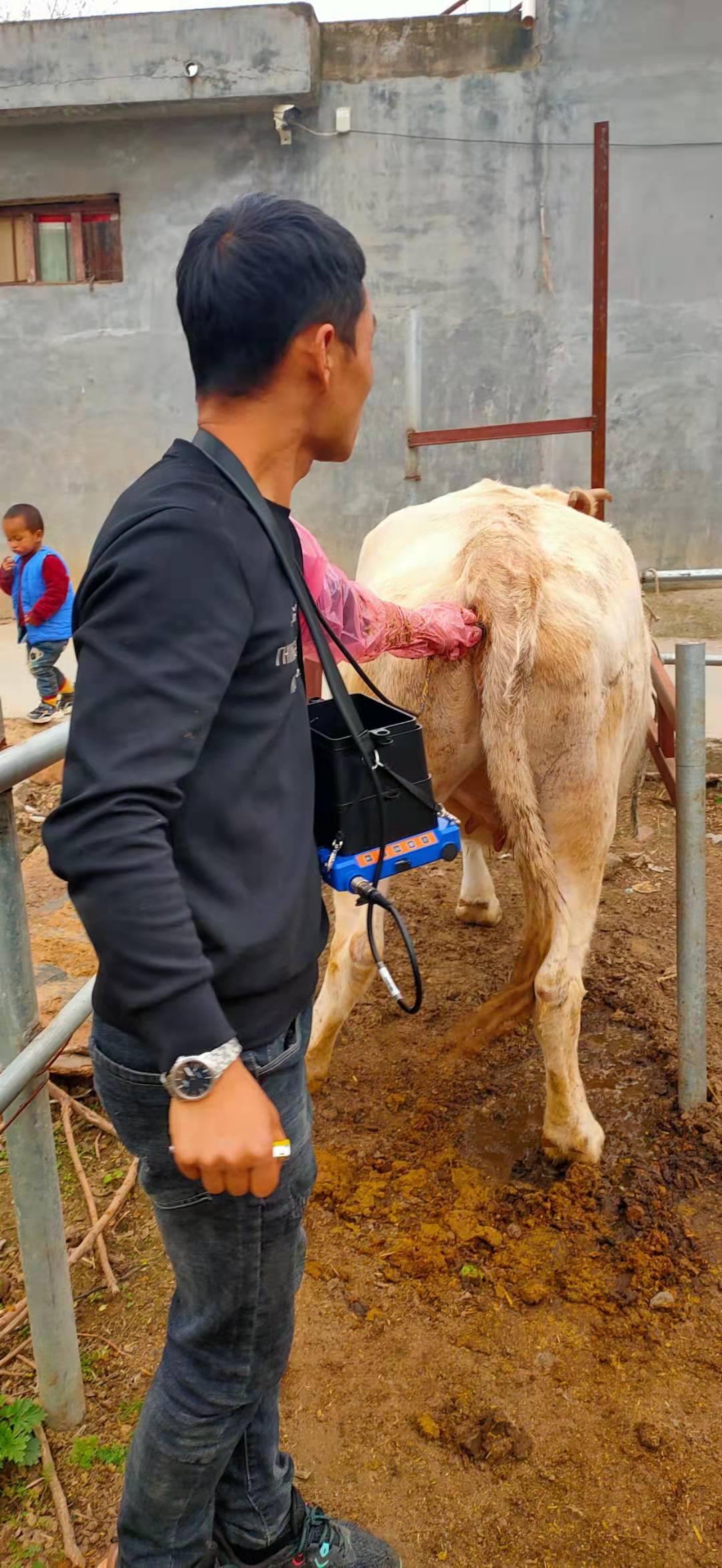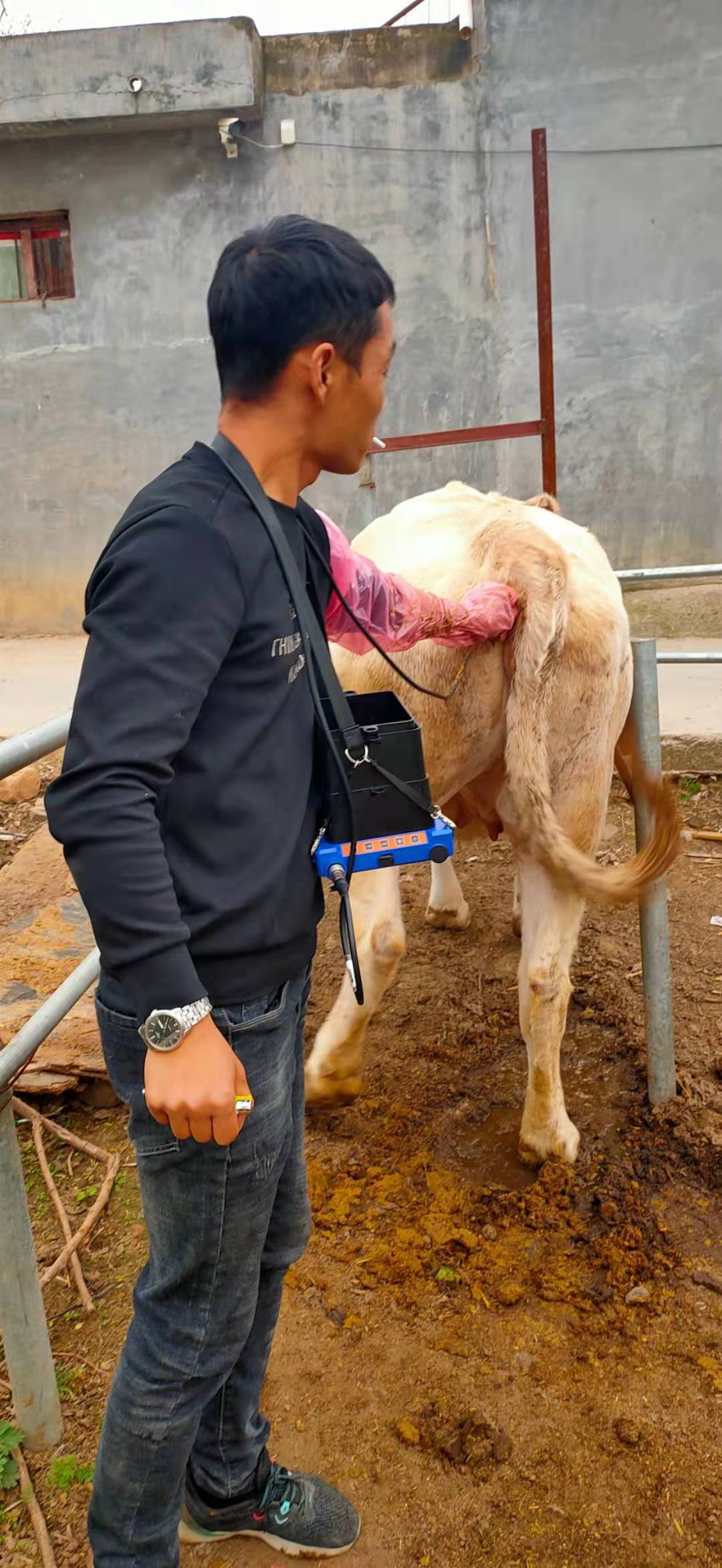Cow ultrasound pregnancy testing has become a vital tool for modern cattle farmers, providing a non-invasive, reliable, and early method to detect pregnancy in cows. This technology offers several advantages, including improved reproductive management, timely decision-making, and better herd productivity. In this SEO-optimized article, we’ll explore the importance of using ultrasound for pregnancy detection in cows, how the process works, and the benefits it brings to livestock management.




What is Cow Ultrasound Pregnancy Testing?
Cow ultrasound pregnancy testing uses high-frequency sound waves to create detailed images of a cow’s uterus and any developing fetus. Unlike traditional methods like manual palpation, ultrasound offers a more accurate and earlier pregnancy diagnosis. The process is typically performed using a transrectal probe, which provides clear images of the reproductive system without causing discomfort or harm to the cow.
How Does Cow Ultrasound Pregnancy Testing Work?
Ultrasound technology relies on sound waves to create real-time images of internal organs. For pregnancy testing, a veterinarian or trained technician inserts a transrectal ultrasound probe into the cow’s rectum to get a clear view of the uterus and detect any signs of pregnancy.
The Step-by-Step Process:
- Restrain the Cow: The cow is safely restrained in a chute to minimize movement and reduce stress during the procedure.
- insert the Probe: A lubricated transrectal probe is inserted into the rectum. The probe emits sound waves, which bounce off tissues in the reproductive tract and create an image on the ultrasound screen.
- Visualize the Uterus: The operator views the uterus to check for the presence of a gestational sac, fetal heartbeat, or other fetal structures.
- Confirm Pregnancy: If a pregnancy is confirmed, the operator can estimate gestational age and check for multiple fetuses or any abnormalities. If no pregnancy is detected, the cow can be reintroduced to the breeding program.
Benefits of Using Ultrasound for Cow Pregnancy Testing
Early Detection
- Ultrasound can detect pregnancy in cows as early as 28-30 days after conception. This early diagnosis allows farmers to make timely decisions about breeding schedules, feeding programs, and herd management.
Highly Accurate
- Ultrasound provides a more accurate diagnosis compared to traditional palpation. The detailed images allow veterinarians to confirm pregnancy with greater precision, reducing the chances of false positives or negatives.
Non-Invasive and Safe
- The procedure is non-invasive and causes minimal stress to the cow. Since there is no need for radiation or anesthesia, ultrasound is a safer option for both the animal and the technician.
Fetal Health Monitoring
- Beyond confirming pregnancy, ultrasound enables veterinarians to monitor fetal health, check for multiple pregnancies, and detect any potential abnormalities early. This helps in planning for calving and ensuring a healthy pregnancy outcome.
Improved Breeding Program Management
- By identifying pregnant and open (non-pregnant) cows early, farmers can better manage their breeding programs. Open cows can be re-bred sooner, improving overall herd fertility and reproductive efficiency.
Cost-Effective
- Although purchasing an ultrasound machine involves an initial investment, the long-term cost savings from improved reproductive management, reduced calving issues, and increased productivity make it a cost-effective tool for livestock operations.
When to Perform Cow Ultrasound Pregnancy Testing
The optimal time to perform cow ultrasound pregnancy testing is 28-35 days post-breeding. Testing at this stage allows for early detection of pregnancy, giving farmers time to re-breed non-pregnant cows and manage pregnant cows more effectively. Repeat ultrasounds can also be conducted later in the pregnancy to monitor fetal development and ensure the health of the cow and the fetus.
Choosing the Right Ultrasound Machine for Cow Pregnancy Testing
Selecting the right ultrasound machine is essential for obtaining clear, accurate images and ensuring the efficiency of the procedure. Here are some factors to consider when choosing an ultrasound machine for cow pregnancy testing:
Portability
- A portable ultrasound machine is ideal for on-farm testing, allowing veterinarians or technicians to easily move between locations and perform the procedure in various environments, whether indoors or in the field.
Image Quality
- High-resolution imaging is crucial for accurate diagnosis. Choose an ultrasound machine that offers clear, detailed images of the uterus and fetus, enabling early detection and precise fetal monitoring.
Durability
- Farm environments can be harsh, so it’s important to invest in a machine that is durable and designed to withstand exposure to dust, water, and rough handling.
Battery Life
- Long battery life is essential for ultrasound machines used in field settings. A machine with extended battery performance will ensure uninterrupted use, even during long testing sessions.
Ease of Use
- A user-friendly interface is important for efficient operation, especially for veterinarians who need to perform multiple tests in a short amount of time. Look for machines with intuitive controls and clear displays.
Best Practices for Cow Ultrasound Pregnancy Testing
To get the most out of ultrasound technology in your livestock management program, it’s essential to follow best practices:
Train Your Staff
- Ensure that only trained veterinarians or technicians operate the ultrasound machine to maximize accuracy and minimize stress to the animals.
Perform Routine Testing
- Incorporate routine ultrasound testing into your herd management strategy. Regular pregnancy checks help keep your breeding program on track and ensure optimal reproductive health for your cows.
Maintain Your Equipment
- Regularly clean and maintain the ultrasound machine to ensure its longevity and performance. Proper maintenance prevents downtime and ensures the machine provides reliable results over time.
Keep Accurate Records
- Maintain detailed records of each cow’s pregnancy status, breeding dates, and fetal health. This data helps inform future breeding decisions and allows for better management of herd fertility.
Conclusion: The Value of Cow Ultrasound Pregnancy Testing
Cow ultrasound pregnancy testing is an essential tool for modern cattle farmers looking to improve reproductive management, increase herd productivity, and ensure the health of their livestock. With its ability to provide early, accurate, and non-invasive pregnancy detection, ultrasound technology is a cost-effective and reliable solution for farms of all sizes.
Investing in a high-quality ultrasound machine and incorporating routine pregnancy testing into your herd management practices will lead to better breeding outcomes, healthier cows, and a more efficient operation overall.
tags: Cow Ultrasound


